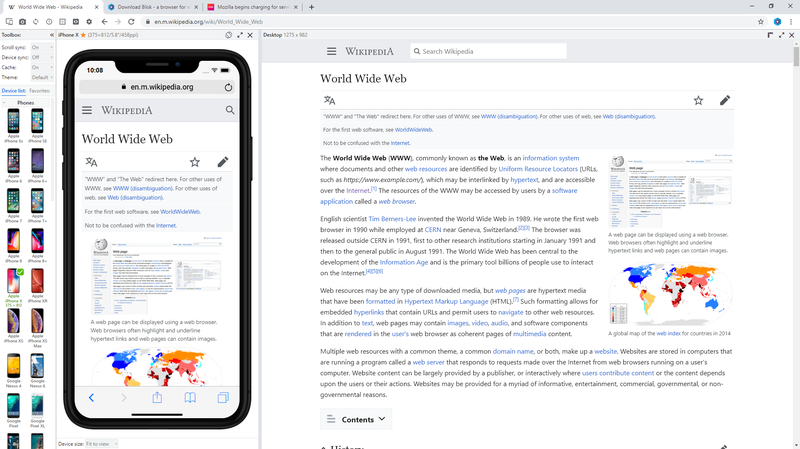 APPS
APPS
 APPS
APPS
 APPS
APPS
The Chromium-based Blisk browser for web developers has suffered a data leak, with the records of 2.9 million users exposed via a misconfigured online database.
Discovered late last week by security researchers at vpnMentor, the data was exposed by a misconfigured Elasticsearh database. The database included 3.4 gigabytes of records and included email addresses, IP addresses and user-agent details.
Blisk, offered by Estonian company SyncUI OÜ, is said to be popular with web developers. Customers include Microsoft Corp., Apple Inc, eBay Inc., HP Inc., the United Nations Children’s Fund, the National Aeronautics and Space Administration, Pandora, Vice News and Xerox Holdings Corp.
The researchers discovered the database in February 2019, then contacted SyncUI in April. The company didn’t respond until May and then didn’t take the database offline until September.
The fact that the company was gathering the data to begin is concerning. The researchers noted that “it’s bad enough that Blisk is built to collect user data and worse still that it’s then leaking this data to the outside world.”
The report also notes that Blisk not only collects user data but is designed to bypass security measures put in place by users as well. “Since the browser ‘sees’ what the user sees, it can potentially bypass every encryption, 2-factor authentication and any other measure they have in place,” the researchers noted. “If the user is using software that is not heavily secured, this can lead to very serious security breaches.”
Blisk has yet to comment on the report.
Kelly White, chief executive officer of risk assessment software company RiskRecon Inc., told SiliconANGLE that the margin of allowable error in cloud-based databases is minuscule.
“With one configuration error, sensitive data can be exposed to the internet for anyone to see,” White said. “Operating successfully where there is no control to compensate for a mistake requires tremendous organizational discipline.”
And most companies don’t have that, White added. “Until cloud database providers build in stronger safety measures, such as mandatory dual approval for high-risk configuration changes, we will continue to see massive data exposure that could be avoided,” he said.
THANK YOU